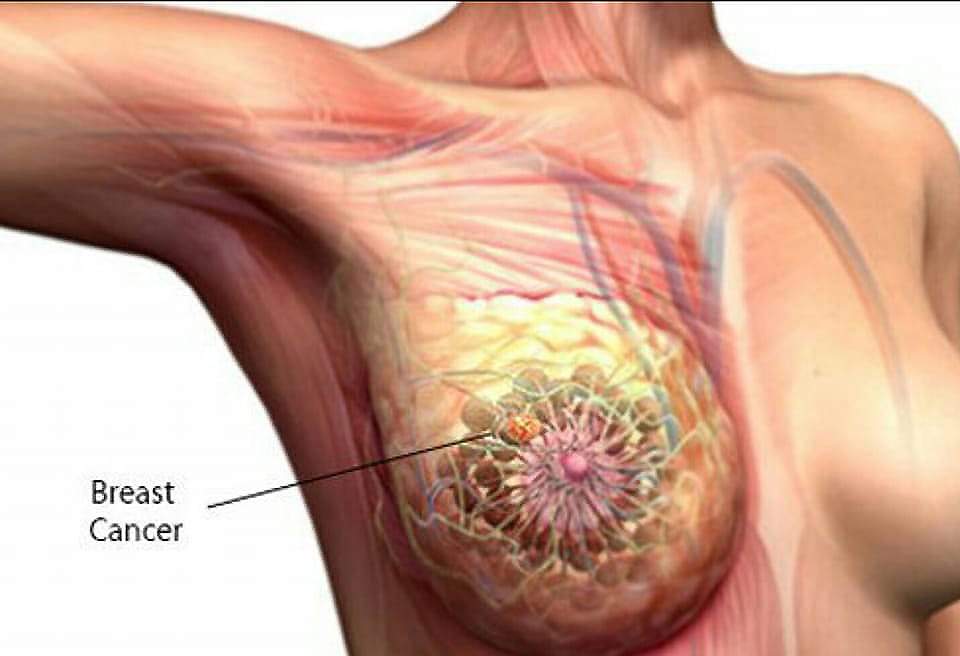Inflammatory Breast Cancer: A Rare and Aggressive Form of Breast Cancer
What is Inflammatory Breast Cancer?
Inflammatory Breast Cancer (IBC) is a rare but aggressive type of invasive breast cancer, accounting for only 1% to 5% of all breast cancer cases. Unlike other forms of breast cancer, IBC manifests in a distinctive manner, often causing the breast to appear inflamed. This inflammation occurs because cancer cells block the lymph vessels in the skin, leading to symptoms such as redness, swelling, and a warm sensation in the affected breast.
How Inflammatory Breast Cancer Differs from Other Breast Cancers
IBC is unique in several ways:
- Unconventional Appearance: IBC does not typically present with a lump in the breast, which is common in other breast cancers. This absence of a lump can make IBC harder to detect through standard imaging tests like mammograms.
- Patient Demographics: IBC tends to affect younger women, often under the age of 40. Additionally, Black women and those who are overweight or obese are at a higher risk of developing IBC.
- Aggressiveness: IBC grows and spreads rapidly, often reaching an advanced stage by the time of diagnosis. This aggressiveness contributes to a poorer prognosis compared to other breast cancers.
- Advanced Diagnosis: IBC is always diagnosed at least at stage III because it involves the skin of the breast. In about one-third of cases, the cancer has already metastasized to distant parts of the body by the time it is detected, complicating treatment efforts.
Signs and Symptoms of Inflammatory Breast Cancer
IBC symptoms typically develop quickly, within 3 to 6 months, and include:
- Swelling of the breast skin (edema)
- Redness covering more than one-third of the breast
- Thickening or pitting of the skin, giving it a texture similar to an orange peel
- Inversion or retraction of the nipple
- One breast appearing larger than the other due to swelling
- A sensation of warmth or heaviness in the affected breast
- Tenderness, pain, or itching in the breast
- Swelling of lymph nodes under the arms or near the collarbone
These symptoms are often mistaken for infections like mastitis, especially in pregnant or breastfeeding women. However, if symptoms persist or worsen after 7 to 10 days of antibiotic treatment, further tests should be conducted to rule out IBC. Early consultation with a specialist, such as a breast surgeon, is crucial if IBC is suspected.
Diagnosis of Inflammatory Breast Cancer
Diagnosing IBC involves a combination of imaging tests and biopsy procedures:
- Imaging Tests: If IBC is suspected, doctors may order mammograms, breast ultrasounds, or MRI scans to assess the extent of the inflammation and swelling.
- Biopsy: A biopsy is essential to confirm the diagnosis of IBC. This procedure involves taking a small tissue sample from the breast, often from the abnormal skin, to examine it under a microscope. Only a biopsy can definitively diagnose IBC.
- Tests on Biopsy Samples: The biopsy sample is analyzed to determine the cancer’s grade and whether it contains specific proteins, such as hormone receptors or HER2. These factors guide the treatment plan, as certain drugs may be more effective depending on the presence of these proteins.
Stages of Inflammatory Breast Cancer
All cases of IBC are classified as stage III (T4dNXM0) at the time of diagnosis because the cancer involves the skin of the breast. If the cancer has spread to distant parts of the body, it is classified as stage IV.
Survival Rates for Inflammatory Breast Cancer
IBC’s aggressive nature means it has lower survival rates compared to other types of breast cancer. These rates provide an estimate of the percentage of patients still alive five years after diagnosis, depending on the stage of the cancer at the time of detection.
- Regional Stage: 52% 5-year relative survival rate
- Distant Stage: 19% 5-year relative survival rate
- All SEER Stages Combined: 39% 5-year relative survival rate
It’s important to note that these figures are based on data from women diagnosed between 2012 and 2018. Treatments have since improved, potentially leading to better outcomes for those currently diagnosed.
Estimated Costs for Breast Cancer Treatment in India
- Surgery:
- Lumpectomy: ₹1,00,000 – ₹2,50,000
- Mastectomy: ₹2,00,000 – ₹3,50,000
- Breast Reconstruction Surgery: ₹1,50,000 – ₹4,00,000
- Chemotherapy:
- Per Cycle Cost: ₹15,000 – ₹1,00,000
- Total Cost (Multiple Cycles): ₹1,00,000 – ₹6,00,000
- Radiation Therapy:
- External Beam Radiation: ₹1,50,000 – ₹3,50,000
- Brachytherapy: ₹2,00,000 – ₹4,00,000
- Targeted Therapy and Immunotherapy:
- Per Session Cost: ₹1,00,000 – ₹2,50,000
- Total Cost: ₹4,00,000 – ₹12,00,000 (depending on the number of sessions)
- Hormone Therapy:
- Cost: ₹10,000 – ₹50,000 per year
- Diagnostic Tests and Imaging:
- Mammogram: ₹1,500 – ₹5,000
- MRI: ₹5,000 – ₹25,000
- Biopsy: ₹10,000 – ₹25,000
- Consultation and Follow-up Visits:
- Doctor’s Consultation Fees: ₹1,000 – ₹3,000 per visit
Total Estimated Cost for Breast Cancer Treatment in India
Considering all the above factors, the total cost of breast cancer treatment in India can range from ₹3,00,000 to ₹20,00,000 or more, depending on the treatment plan and the specifics of the case.
Treating Inflammatory Breast Cancer
For stage III IBC, treatment typically begins with chemotherapy to shrink the tumor, followed by surgery to remove the cancerous tissue. Post-surgery treatments often include radiation therapy and additional chemotherapy or targeted drug therapy. Due to IBC’s aggressive nature, breast-conserving surgery (such as a lumpectomy) and sentinel lymph node biopsy are usually not part of the treatment plan.
If IBC has spread to other parts of the body (stage IV), treatment options may include chemotherapy, hormone therapy, and targeted drugs to manage the disease.
Inflammatory Breast Cancer is a challenging diagnosis, but advancements in treatment are improving outcomes. Early detection and aggressive treatment are key to managing this rare and aggressive form of breast cancer.
Also read: Breast Cancer Treatment Cost in India





